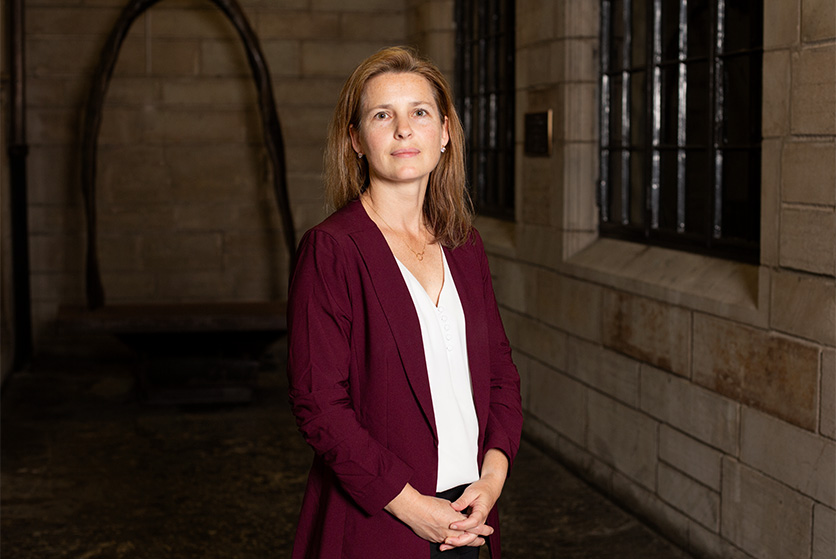Our center can make major contributions to improving the health of our community and country by bridging the scientific gap between scientific discovery and real-world practice.”
Norrina Allen Named Director of Center for Health Services and Outcomes Research

Allen aims to catalyze new approaches that improve health care access for those who need it most (photo by Eileen Molony)
By Andrew Nellis
April, 29 2025
Norrina Bai Allen, PhD, vice chair for Research of the Department of Preventive Medicine and Quentin D. Young Professor of Health Policy, has been named the Director of the Center for Health Services and Outcomes Research (CHSOR).
“Dr. Allen has been an incredibly collaborative and impactful leader at the Institute for Public Health and Medicine (IPHAM), and I believe her vision will elevate the center to even greater heights,” said Ron Ackermann, director of the IPHAM, which houses CHSOR. “Throughout our conversations I have been continually inspired by her motivations to preserve the existing strengths of CHSOR while catalyzing new work that draws on her own unique expertise and track record of collaborative health science and leadership.”
Allen, who previously served as the director of the Center for Epidemiology and Population Health (CEPH), is a national leader in cardiovascular epidemiology. Her work aims to promote cardiovascular health across the life course — particularly through improving blood pressure diagnosis and management — and to develop strategies for identifying individuals at high risk for future heart disease, stroke and dementia.
That work closely aligns with the CHSOR’s mission to generate new knowledge that improves healthcare practice, population health and health equity by discovering which healthcare interventions work best for which people.
In taking on the new role, Allen will leverage her expertise to generate new, more comprehensive approaches to health promotion, from prevention to treatment to outcome.
“The combined scientific strength of CEPH and CHSOR offers us a rare opportunity to build a unified approach that connects population health insights with health systems innovations,” said Allen. “Our center can make major contributions to improving the health of our community and country by bridging the scientific gap between scientific discovery and real-world practice — ensuring that innovations in prevention, treatment and care improve the lives of our patients.”
Such work helped define Allen’s early career when she examined how health care policy and access impacts stroke outcomes. In one study, she found that people who lived in areas with fewer primary care and neurology providers had worse outcomes and a higher likelihood of recurrent strokes. These populations were largely centered in an area of the country known as the “Stroke Belt,” which spans the Southeastern United States.
“Understanding the causes behind health disparities allows states and health care systems to craft more effective solutions,” Allen said. “In our case, those findings reinforced the need for new workforce development programs to train more physicians, as well as telemedicine and technology-based solutions to improve access to care among rural populations.”
Allen aims to develop a similar approach at CHSOR, shining light on areas of the country experiencing major health disparities. Such imbalances can have significant impacts on people’s quality of life but also the nation’s economic health. The American Heart Association estimates that the annual health care costs associated with cardiovascular conditions alone are projected to quadruple in the coming decades, reaching $1490 billion, with productivity losses increasing to $361 billion.
For Allen, however, her motivation to improve care is driven by her hopes for the next generation.
“This generation of children is one of the first that is expected to have shorter lives than their parents,” Allen said. “It’s not that we don’t understand these diseases and how to treat them, it’s our inability to actually deliver high-quality care to those who most need it. It is our responsibility to address that.”